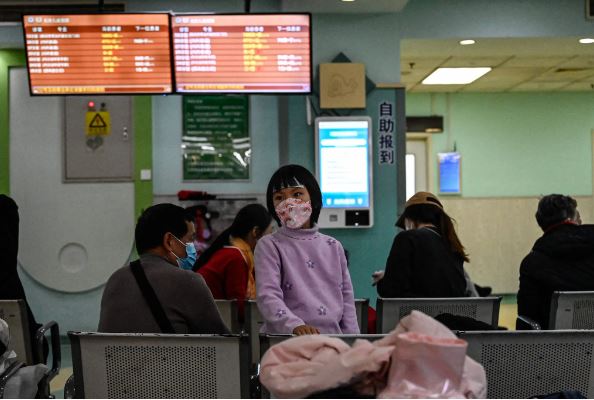A select group of Republican senators has called upon President Biden to implement a travel ban from China, expressing concerns about a purported outbreak of respiratory illnesses among Chinese children. However, global health officials and scientists assert that there is no evidence of a new threatening pathogen, attributing the surge to conventional infectious agents like influenza and the relaxation of Covid lockdowns in China.
The World Health Organization (WHO) revealed that China had shared data, including laboratory results from affected children, indicating no unusual pathogens. Dr. Mandy Cohen, Director of the Centers for Disease Control and Prevention (CDC), echoed this assessment, emphasizing that the surge in respiratory illnesses is related to known viruses and bacteria in the pediatric population.
China’s shared data revealed an increase in hospitalizations of children with cold, flu, respiratory syncytial virus (R.S.V.), and mycoplasma pneumoniae infections since October. Mycoplasma pneumoniae, a bacterium causing mild illness, has been on the rise since May. Despite the surge in cases causing extended waits at children’s hospitals, similar pathogens are already increasing in the United States due to seasonal changes, negating the threat of imported cases from China.
Dr. William Schaffner, a professor of infectious diseases, highlighted that mycoplasma, rhinovirus, and influenza are normal respiratory viruses encountered worldwide. As countries lift Covid lockdowns, there tends to be a surge in routine respiratory illnesses, particularly in children. Last year, the United States experienced a wintertime “tripledemic” of Covid, flu, and R.S.V., straining hospitals. The same pattern occurred in Australia, and this year’s respiratory illness season in the U.S. started earlier than usual.
Experts attribute these outbreaks to children’s immune systems being behind schedule after years of limited exposure to everyday viruses during Covid lockdowns. The post-lockdown surge in routine infections may be more substantial in China due to the length and severity of their lockdowns.
While Ohio reported a high number of pediatric pneumonia cases, health officials dismissed the idea of a new respiratory disease or a connection to outbreaks abroad. Dr. Cohen reassured that emergency rooms across the U.S. were not observing atypical pneumonia-related visits.
Despite the situation in China not appearing to pose a global threat, health officials emphasize the importance of vaccination against Covid, flu, and R.S.V. Only a fraction of U.S. adults had received flu vaccines by mid-November, and uptake of updated Covid vaccines had been slow.
As officials monitor the situation in China, questions remain about the age of those infected, affected cities, and the causes of severe pneumonia cases. However, travel bans are discouraged, with the WHO asserting that such restrictions are unwarranted.

